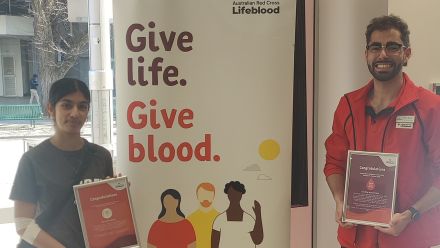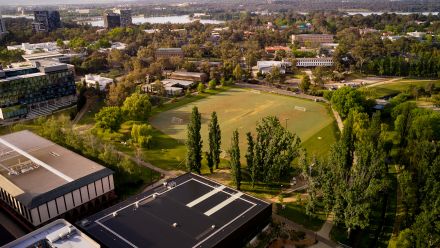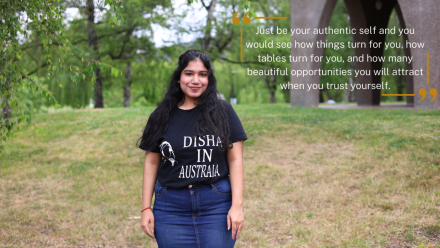Coming together to help make a better society for women
The way in which Aboriginal women see this issue is very different to the way that non-Aboriginal women see this issue.
As part of National Reconciliation Week, the University brought prominent Indigenous and non-Indigenous women together to tackle one of Australia's biggest challenges: the treatment of women in society.
The Hon Linda Burney MP, ANU College of Arts and Social Sciences Dean Professor Rae Frances, Fiona Cornforth, CEO of The Healing Foundation and Geraldine Chin Moody, a co-founder of 5H Values Capital, were panel members at the event on Tuesday 1 June. ABC Radio National Breakfast host Fran Kelly chaired the discussion.
They tackled the question, what could we change if First Nations people and non-Indigenous Australians came together?
Ms Burney said the voices of young women, particularly staff of MPs and Ministers, were "very important".
"We employ our own staff so that, to me, is a structural problem. Where do those staff go if the employer is the predator?"
Ms Burney said marginalised women were not being given a voice, particularly "First Nations women who suffer more in terms of assault and murder and hospitalisation than the rest of the community because of domestic and family violence".
"The way in which Aboriginal women see this issue is very different to the way that non-Aboriginal women see this issue," Ms Burney said.
"It's not about the individual. It's about the family. It's about the community. It's about the men. It's about the wellbeing of everyone, not just about one person."
Professor Frances said recent media reports on former parliamentary staff member Brittany Higgins' allegations of sexual assault had prompted the community to "stand up and take notice".
"I think what's really struck home with Brittany Higgins' case is that a lot of powerful white men in Australia think that could have been my daughter and it's made a difference and that opens up the discussion where people look more broadly at what else is going on in that space," she said.
Ms Cornforth many of the challenges that Indigenous communities face "are down to the fact that there were policies that removed us from families from loving and nurturing families".
"That is historical trauma that is yet to be addressed.
"We're going to heal our men. We're going to lead this intergenerational healing, because we've always known how to heal. Our cultures have provided for it and we need everyone else to get on board."
Ms Moody spoke about creating an inclusive environment that supports people from all different backgrounds.
"It's important for us to think about how we move organisations through what I call a 'maturity journey'," she said.
Ms Moody said this journey involves "making sure they comply, making sure they're investing in changing mindsets and breaking down unconscious bias and getting rid of discrimination within their systems, and then moving to integrate it into the way that they do business".
"For example, when I was at Virgin five or six years ago, we put in place with the unions 10 days of paid family domestic violence leave and we used that as a chance to educate the workforce on why that was important," she said.
Ms Moody said if employers can provide a system that gives their employees access to support for family and domestic violence or sexual harassment, they can create a safer workplace for everyone.
Ms Burney had the final say at the event, making the point that reconciliation is not a destination, but rather a journey.
"It's the humble acts of reconciliation that bring about change," she said.


